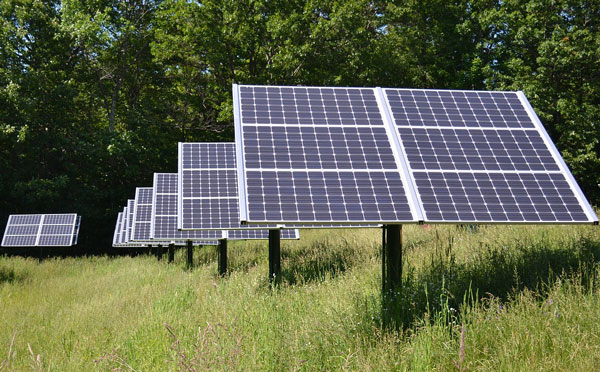There are multiple options to consider when you’ve decided to go solar.
It is widely known that solar energy is the cleanest, safest, renewable energy source available. The concept of turning sunlight into electricity – known as the photovoltaic (PV) effect – was discovered in the 1800’s. It took a while to gain momentum but over the last decade, solar has averaged an annual growth rate of 50%. There is now enough solar PV capacity installed in the United States to power 12.7 million homes.
However, the majority of homes and commercial buildings do not qualify for rooftop solar systems for various reasons:
- Trees or other buildings block out sunlight
- Their roof is not southern-facing, limiting direct sunlight exposure
- Their roof needs to be replaced within 20 years
- Their roof is made of material unsuitable for solar installations (slate, cedar tile)
- The building is not owned but leased by the business
- They’re prevented by their homeowner’s association or historical society
Regardless of the location of your home or business, the advancement of solar technology is allowing people to save on their electricity and lower their carbon footprint, even if a rooftop solar system is not an option.
Introducing Community Solar.. also known as Solar Gardens, or Shared Solar.
Community Solar is the term coined for the shared use of electricity generated by solar farms in your area.
Much like subscribing to Netflix or your favorite streaming service, you become a “subscriber” to a solar farm and are allocated a portion of the solar energy produced by that farm.
By becoming a subscriber, you receive ‘credits’ that are used against your regular utility bill, saving you on average 7%-10% in electricity costs each month.
With no risk, it’s a no-brainer.
An added benefit to going community solar is that you are not responsible for upkeep of the solar farm.
Unlike a solar rooftop system, you do not have to worry about removing and replacing solar panels on your roof – at your cost – should a roof repair ever be needed.
And if you grow tired of savings money, most community solar subscriptions allow you to terminate the agreement with proper notice at no cost.
Want to learn more about Community Solar?
Contact the experts, Solar On Earth – we help homeowners and businesses make the most of solar energy through community solar programs.
Call 844 SOL-CLUB (765-2582) or send an email to [email protected]
